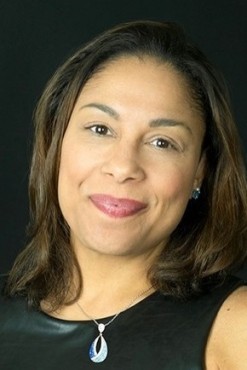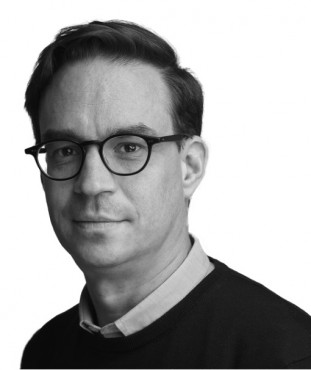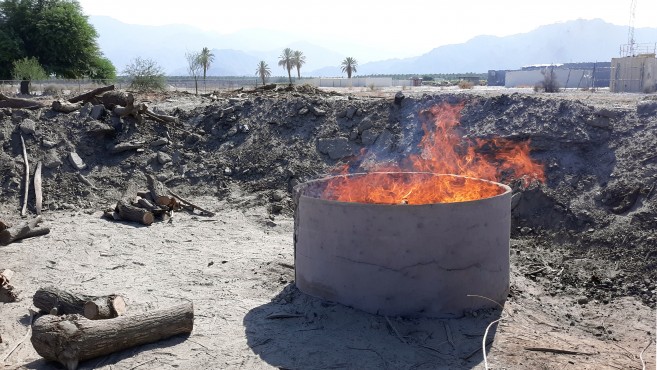
Intersections
Reimagining Identities, Positionalities, Multiplicities, Alterities
In a world increasingly shaped by displacement, crisis and uncertainty, ‘identity’ has resurfaced as a crucial concept and is at the core of highly politicized and medialized disputes ranging from antiracist and feminist protests (e.g. #blacklivesmatter, #metoo) to nativist backlashes and anti-immigration stances. A prevailing climate of division and fear is punctuated by moments of solidarity. Academia is right in the thick of it.
Few other concepts in the humanities and social sciences have been subject to such widespread debates in recent decades and yet have persisted as stubbornly as the concept of ‘identity’. While until recently the concept’s heyday was mainly localized in 1990s academic discourse, of late it has found its way back into focus, along with related concepts such as ‘subjectivity’, ‘alterity’, ‘difference’.
Discourses on identity have always been manifold, heterogenous and contradictory: somewhere between constant flux and essential stasis, becoming and being, between particularism and universalism, between difference and similarity. Stuart Hall has conceived of (cultural) identities as unstable points of identification that are produced in discursive imaginings of history and culture. Not an essence, but a positioning. Paul Ricoeur put forward the idea that humans self-author identity by creating meaningful narratives or stories to make sense of the past, present and future. The idea of ‘third space’ as a liminal in-between space of colliding cultures within which new hybrid cultural identities are being formed and transformed, has been developed in Homi Bhabha’s work. ‘Intersectionality’, a concept that emerged within the civil rights movements and particularly in Black feminism, entered the academic debate, first through Kimberlé Crenshaw and then through other scholars such as Ange-Marie Hancock, Jennifer C. Nash, Patricia Hill, and Sirma Bilge. The concept showed the importance of understanding subjectivity and identity as shaped by mutually reinforcing factors such as race, gender, class, sexuality, age, education, dis/ability, etc. and their embedding in various power dynamics. Meanwhile, psychoanalysis, post-structuralism and phenomenology have long expressed the idea of the multiplicity of the subject and the self: our “auto” is always already radically altered through language, culture, time and space. A deferring game of inclusion and exclusion, differentiation and alterization brings permanently shifting selves and corresponding others into play. Relying mainly on Marxist frameworks, other critics of ‘cultural identity’ have suggested that, even though concepts of ‘identity‘ are useful to create moments of solidarity and connection, at the same time they open up the potential for conflict. Instead, they have proposed to focus on similarity, shared struggles and a more inclusive universality. Queer theory, in its troubling of normative forms, moves away from an overemphasis on categories and ‘identities’ and attempts to find new forms of solidarity, community and care. In line with such a queering endeavor, Donna Haraway and other posthumanist feminist scholars replace all bounded individualism – including human exceptionalism – with a plea for a tentacular planetary thinking.
Amid this myriad of conceptualizations of identity and its contestations, the organizers of the Summer School sympathize with thinking from margins, boundaries, overlaps and transitions to open up innovative avenues of heuristic readings and engaged stances: Reading from in-between differences and identities, reading from the intersection, allows to reflect on the ways in which knowledge is produced, shared, and evaluated. It puts forward a complicating, connecting, vibrant, processual, transmedial and open way to conceptualize the world, undermining monolithic conceptions of systems, structures, fields, disciplines, and research objects.
In the 2024 Summer School, we aim to reimagine ‘Identities, Positionalities, Multiplicities, Alterities’ from historical, literary, cultural, sociological, anthropological, philosophical, and artistic perspectives, which allows for discussions on broader epistemological questions on power and justice, not least in the process of knowledge production and our own positionalities as researchers. We thus aim to stimulate inter- and transdisciplinary reflections implicated on both sides – the researcher’s and those being researched – as we grapple with the messiness of past, present and future life and how to capture its ambiguities and complexities. Some of the guiding questions of this Summer School are:
- What do we really mean by such elusive ideas and broad concepts as identity, difference or alterity and their avatars, whether by challenge or rediscovery? How have they evolved and changed in public discourse and academic analysis?
- How might ways of reading from the intersection and the margins be translated into concrete research practices, helping us to account for past and present complex realities and contexts in new and more nuanced ways and self-reflect on our ethical responsibilities as researchers towards engaged and future-oriented scholarship?
- Which participatory, narrative, experiential, poetic, sonic or artistic research methodologies could be employed to disrupt logocentric objectivism and linear methods?
Invited keynote speakers:
Prof. Dr. Jack Halberstam (Professor of Gender Studies and English at Columbia University, New York)
Prof. Dr. Ange-Marie Hancock (Professor and Executive Director, Kirwan Institute for the Study of Race & Ethnicity, Ohio State University, Columbus)
Prof. Dr. Daniel Loick (Associate Professor of Political and Social Philosophy at University of Amsterdam)
Organizers: Graduate School of the Arts and Humanities (GSAH), University of Bern, within the framework of the European Summerschool of Cultural Studies (ESSCS).
Call for Application For further information about the summer school and the application procedure (application deadline April 22, 2024), please have a look at our call.






